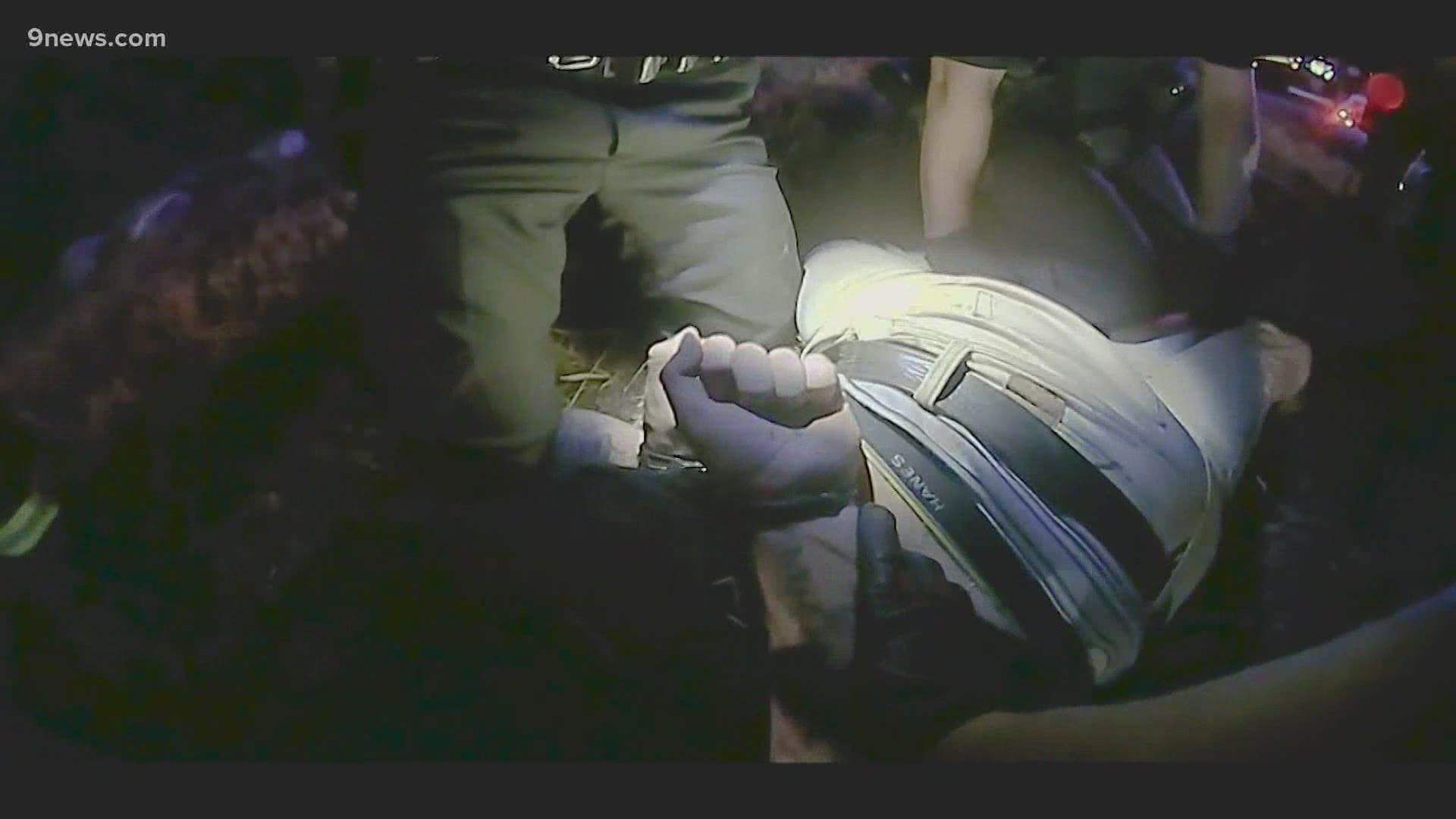ARAPAHOE COUNTY, Colo. — Attorneys on Wednesday filed an excessive force lawsuit in federal court related to Arapahoe County sheriff deputies' response to a call in August 2019.
The lawsuit alleges deputies responding to a call of an unconscious man at a bus stop on Aug. 20, 2019 used unreasonable and excessive force when apprehending the man, identified as Elijah McKnight.
Arapahoe County Sheriff's Office said they just received the lawsuit and could not provide a comment at this time.
Deputies Justin Yantiss and Andrew DeVries were responding to the call at about 9:35 p.m. when they found McKnight at the bus stop, according to the lawsuit.
Yantiss was able to wake McKnight up, and the two deputies began talking to McKnight about his well being, the lawsuit says.
During their conversation, McKnight told the deputies that he had two outstanding warrants and asked the deputies to contact his dad using the phone number he provided, according to the lawsuit.
DeVries then initiated physical contact in an effort to arrest McKnight, according to the lawsuit.
The lawsuit says both deputies then tackled McKnight, laying him on his back.
DeVries tried to restrain McKnight's legs while Yantiss restrained his upper body, the lawsuit says. DeVries then used a taser "several" times on McKnight's left thigh, according to the lawsuit.
After being tasered, McKnight was rolled onto his stomach and the deputies placed him in handcuffs, the lawsuit says.
At about this time, three paramedics with South Metro Fire Rescue arrived on scene, according to the lawsuit.
(Editor's Note: The video below contains graphic content. Viewer discretion is advised.)
The lawsuits says at this time, DeVries had his knee on the back of McKnight's right leg, which caused McKnight to call out in pain "several times."
While McKnight was restrained on the scene, deputies and paramedics discussed taking McKnight to the hospital; one paramedic said that McKnight would not be transported without being sedated, according to the lawsuit.
In response, the lawsuit says McKnight said, "Don't inject anything into my veins."
The lawsuit says a paramedic injected McKnight with 500mg of ketamine. After the injection, McKnight's speech became "incredibly" slurred, and he entered a near cathartic-like state, the lawsuit says.
According to the lawsuit, paramedics then said McKnight was not sedated enough to go to the hospital and called a doctor for approval before administering two additional doses of ketamine.
McKnight was then transported to the Medical Center of Aurora, according to the lawsuit.
When he arrived at the hospital, the lawsuit says an oropharyngeal airway device was placed in his throat and McKnight was given a bag valve mask to assist with his breathing.
The lawsuit says McKnight's oxygen and carbon dioxide levels later returned to normal, and that he remained unconscious in the intensive care unit (ICU) on a breathing machine for three days.
McKnight spent approximately the next week 1/2 recovering from the incident, according to the lawsuit.
The lawsuit says they requested awards for past and future economic damages, lost wages, medical expenses and other "out-of-pocket" expenses, including pain and suffering and court fees.
RELATED: Colorado Society of Anesthesiologists ask CDPHE to suspend 'excited delirium' ketamine waiver
SUGGESTED VIDEOS: Local stories from 9NEWS

